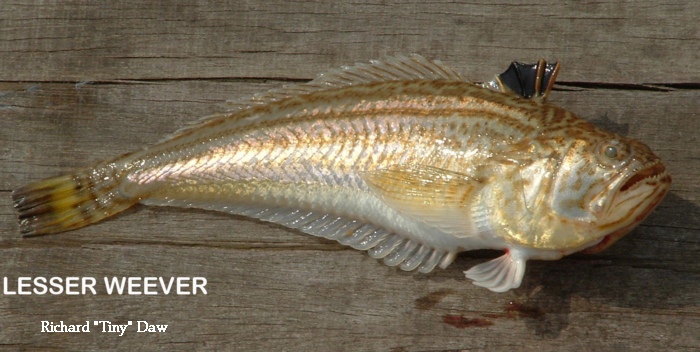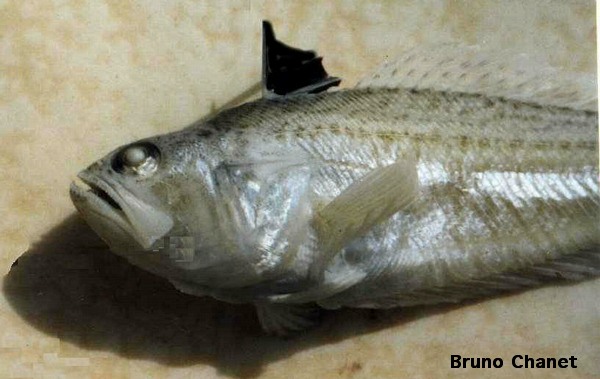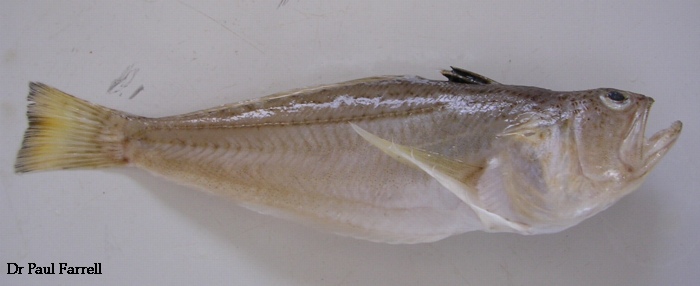Identification:
Elongated, tapered body, that is laterally compressed, with a largeish head.
The mouth is large and obliquely set. The eyes are positioned towards the
top of the head. No spines associated with the rim of the eye socket. The
top of the head is about flush with that of the body. Gill cover sports a
conspicuous spine.
Two dorsal fins are present. The first dorsal fin, is composed of 5 to 6
membrane bound spines, and is a dark grey to black in colour.This is separate
from the second dorsal fin, that is long based and is composed of some 21
to 24 branched rays. The longer anal fin, starts from under the first dorsal
fin, and is formed from 24 to 26 branched rays. The tail fin is straight
edged. The sides under the lateral line, exhibit a degree of herring bone
patterning of the scales, particularly towards the tail.
Colouration ranges from a yellow to light brown on the back, with a degree
of darker spotting and mottling, and paling towards the sides and belly.
Breeding:
Breeds during June though to August.
Habitat:
Associated with shallow sandy bottomed waters, to depths of 50m or more.
Known to move in and out with the tide, and burrows into the sand with just
it's eyes and spines showing.
Food:
Feeds mainly on small crustaceans, such as amphipods, shrimps, along with
small fish.
Range:
Found in all UK waters, although more common towards
the south.
Additional Notes:
Both the spines of the first dorsal fin, and that of
the gill covers, have venom glands attached to them. The spines are
grooved, and when pressed, toxin is driven up the groves, and delivered.
Care should be taken, as the poison causes localized swelling and discomfort,
and on occasions death. The wound should be allowed to bleed freely, thus
helping to flush away the toxin, and maybe treated with potassium
permangenate solution, or very hot water. Seek medical attention / advice.
|


